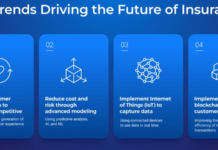In 2024, quantum computing is making headlines once again as tech companies and research institutions announce significant breakthroughs that could reshape the future of technology. Quantum computers, which harness the unique properties of quantum mechanics, have the potential to solve complex problems that are beyond the reach of classical computers. This year, the development of practical quantum systems has accelerated, with companies like IBM, Google, and startups racing to push the boundaries of this emerging field.
Quantum Computing Breakthroughs in 2024
One of the most significant advancements in 2024 is the increase in quantum computing qubit stability, known as “quantum coherence.” For years, researchers have struggled with the problem of qubits – the building blocks of quantum computers – being highly unstable and prone to errors due to environmental factors. However, new techniques in quantum error correction and materials science have led to a breakthrough in qubit coherence times, enabling quantum systems to run more complex calculations for longer periods without significant error.
For example, IBM’s new 2024 quantum processor, called “Condor,” boasts over 1,200 qubits, surpassing previous records and making significant strides toward achieving “quantum advantage” – the point at which quantum computers outperform classical computers in meaningful tasks. The processor uses advanced superconducting technology to maintain stability at a larger scale, bringing us closer to practical quantum applications in fields like cryptography, drug discovery, and materials science.
Impact on Cybersecurity and Cryptography
One of the areas where quantum computing is expected to have a profound impact is cybersecurity, particularly in cryptography. Traditional encryption methods that protect data, such as RSA and ECC, are vulnerable to attacks from powerful quantum computers. In response, researchers are developing “post-quantum cryptography” algorithms that can resist attacks from quantum systems.
In 2024, several governments and organizations have started preparing for the quantum era by testing these new encryption methods. The National Institute of Standards and Technology (NIST) in the U.S. has finalized its list of quantum-resistant cryptographic algorithms, which will become standard over the next decade. This shift will fundamentally change how data is secured across industries, from finance to healthcare.
Quantum AI and Machine Learning
Quantum computing’s potential to revolutionize artificial intelligence (AI) and machine learning has become a hot topic in 2024. Quantum machine learning algorithms, which utilize the unique processing power of quantum systems, can analyze vast datasets far more efficiently than classical computers. This could accelerate the development of AI applications, such as natural language processing, pattern recognition, and drug discovery.
In 2024, Google’s Quantum AI team announced a breakthrough in quantum neural networks, a type of AI that uses quantum properties to simulate complex biological processes. This achievement could open new possibilities in areas like precision medicine, where quantum-powered AI models can analyze patient data to create highly personalized treatments.
Advancements in Quantum Communication
Quantum communication, which uses quantum particles to transmit information securely, has seen major advancements in 2024 as well. China continues to lead the charge in this field, having successfully launched the world’s first quantum communication satellite several years ago. In 2024, the country expanded its quantum network, enabling ultra-secure communication between key research hubs and institutions across vast distances.
Quantum communication is based on the principle of quantum entanglement, where particles are linked in such a way that changes to one particle are instantly reflected in the other, regardless of distance. This enables information to be transmitted securely, with any attempts to intercept the communication immediately detectable. As quantum networks expand, they could create a new global internet infrastructure that is far more secure than today’s traditional networks.
Quantum Computing’s Role in Scientific Discovery
In 2024, quantum computing is playing a crucial role in scientific discovery. Quantum simulators, which model complex quantum systems, are helping scientists explore new materials, chemical reactions, and even quantum physics itself. Researchers are using these simulators to solve problems in chemistry and physics that were previously impossible, opening up new frontiers in drug development, renewable energy, and nanotechnology.
For example, quantum simulations have helped discover new materials with superconducting properties, which could revolutionize industries like electronics and energy transmission by drastically reducing energy loss in power grids.
Challenges and the Road Ahead
Despite the remarkable progress in 2024, quantum computing still faces significant challenges before it becomes widely available. One major hurdle is the development of fault-tolerant quantum computers that can operate at scale without errors. While error correction techniques have improved, creating fully fault-tolerant systems remains a challenge for the industry.
Additionally, the sheer complexity of building and maintaining quantum systems, which require extremely cold temperatures and isolation from environmental noise, poses logistical challenges. However, many experts believe that by the 2030s, quantum computing will reach a level of maturity that allows it to be integrated into mainstream computing infrastructure.





